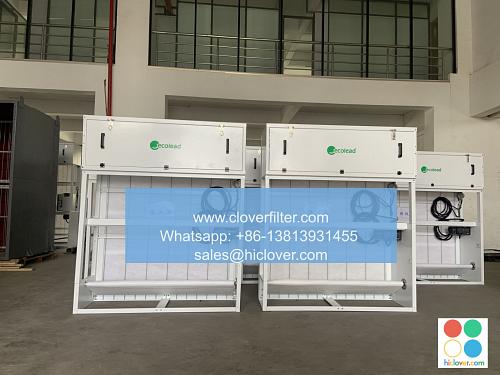The Future of Air Filtration: Emerging Trends and Technologies

As the world grapples with the challenges of air pollution and indoor air quality, the demand for effective air filtration systems has never been more pressing. The air filtration industry is rapidly evolving, driven by advances in technologies such as nanotechnology, biotechnology, and artificial intelligence. In this article, we will explore the emerging trends and technologies that are shaping the future of air filtration, and highlight their applications in various fields.
Emerging Trends in Air Filtration
Several trends are expected to dominate the air filtration market in the coming years. These include:
* Increased focus on indoor air quality: As people spend more time indoors, the importance of indoor air quality is becoming increasingly recognized. This is driving the demand for air filtration systems that can effectively remove pollutants and allergens from the air.
* Growing adoption of smart technologies: The use of artificial intelligence and Internet of Things (IoT) technologies is becoming more prevalent in air filtration systems. These technologies enable real-time monitoring and control of air quality, making it possible to optimize filtration systems for maximum efficiency.
* Development of sustainable and eco-friendly solutions: As concern about climate change and environmental sustainability grows, the demand for eco-friendly air filtration systems is increasing. This includes systems that use renewable energy sources, recyclable materials, and biodegradable filters.
Advances in Air Filtration Technologies
Several technologies are emerging that are expected to revolutionize the air filtration industry. These include:
* Nanofiltration: This technology uses nanoparticles to remove pollutants and allergens from the air. Nanofiltration systems are highly effective and can remove particles as small as 0.01 microns.
* Biotechnology-based filtration: This technology uses microorganisms to break down pollutants and allergens. Biotechnology-based filtration systems are highly effective and can remove a wide range of contaminants.
* Artificial Intelligence (AI) powered filtration: This technology uses AI algorithms to optimize filtration systems for maximum efficiency. AI-powered filtration systems can detect changes in air quality and adjust the filtration system accordingly.
Application Areas for Emerging Air Filtration Technologies
The emerging trends and technologies in air filtration have a wide range of applications in various fields, including:
* Industrial and commercial settings: Air filtration systems are used to remove pollutants and allergens from the air in industrial and commercial settings. This includes manufacturing facilities, office buildings, and hospitals.
* Residential settings: Air filtration systems are used to improve indoor air quality in residential settings. This includes homes and apartments.
* Transportation: Air filtration systems are used to remove pollutants and allergens from the air in vehicles. This includes cars, buses, and airplanes.
* Healthcare: Air filtration systems are used to remove pollutants and allergens from the air in healthcare settings. This includes
Conclusion
The future of air filtration is exciting and rapidly evolving. Emerging trends and technologies such as nanotechnology, biotechnology, and artificial intelligence are expected to revolutionize the air filtration industry. These technologies have a wide range of applications in various fields, including industrial and commercial settings, residential settings, transportation, and healthcare. As the demand for effective air filtration systems continues to grow, it is likely that we will see significant advances in this field in the coming years. It seems like you haven’t provided a prompt or question for me to address. Could you please provide more details or clarify what you would like to know or discuss? I’m here to help with any questions or topics you’d like to explore.

